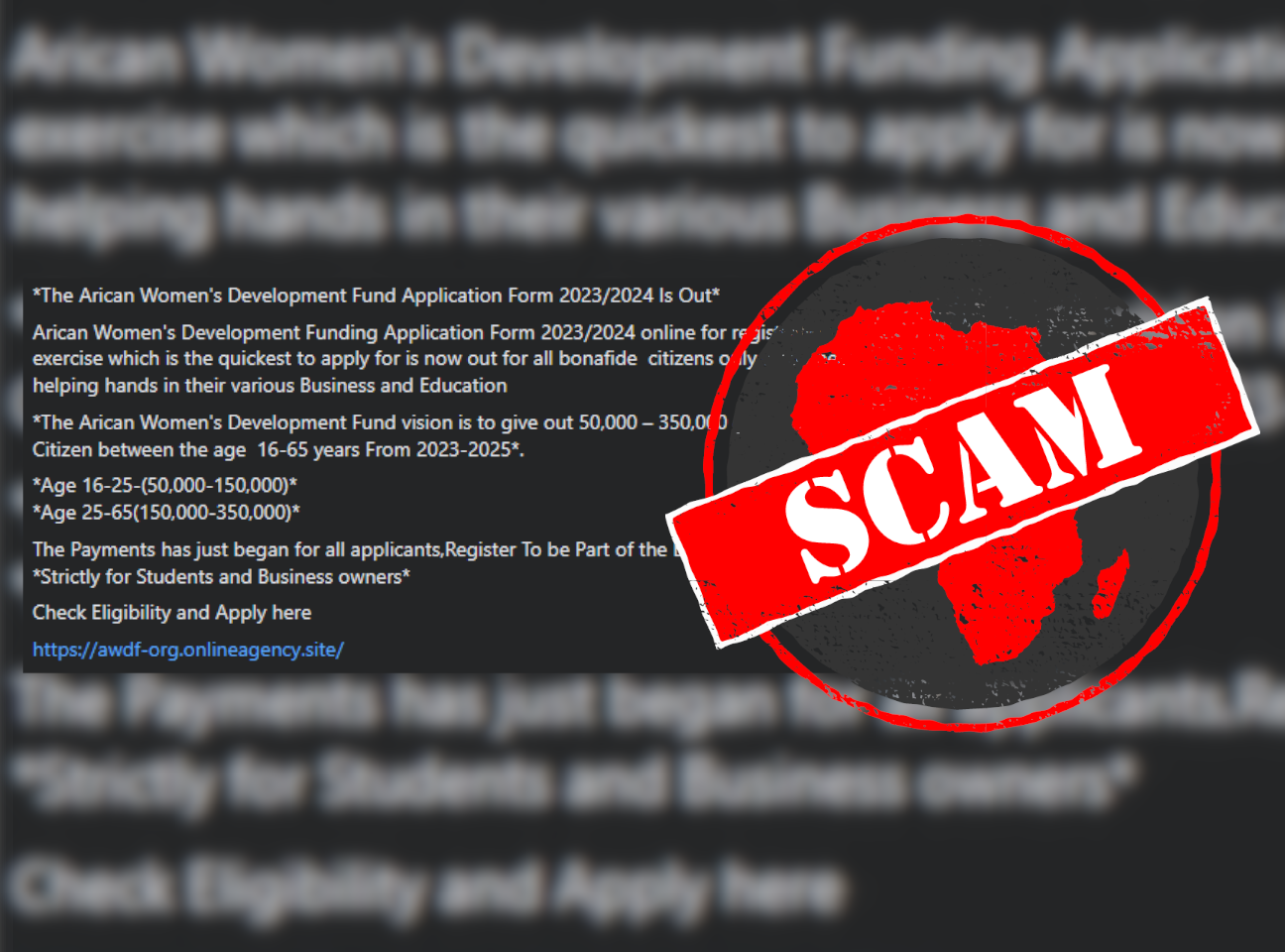IN SHORT: This website claims to fund at least 985,000 African women via direct bank transfer over a six-month period. But beware, it is fraudulent and should be ignored.
An unprofessional-looking website, awdf-org.onlineagency.site, offering to fund the human rights activism of African women is attracting a lot of attention on social media.
The website claims that its aim is to fund at least 985,000 African women through direct bank transfers over six months. Its homepage is headlined: “African Women's Development Fund.”
The site includes an “application form” that asks for personal details such as name, mobile phone number and country of origin. The form also asks whether applicants have applied for funding before.
Some posts about the fund have been published in public Facebook groups with thousands of members here, here, here, here and here.
But is the website and its information about the “African Women's Development Fund” legit? We checked.

Imposter website
When we tried to open the website, our antivirus programme warned us that it “poses a potential data leakage threat”. That was the first red flag. We opened it anyway to find out more about the grants.
We deliberately left the “application form” blank and clicked on “APPLY NOW”. Suspiciously, we were told that our application had been received and we were taken to the next stage. This is a sign of a poorly designed website, which is common among scammers. The site also contains misspelled words, which is unusual for a website that claims to be professional.
The next stage required us to state what we intended to do with the money, our occupation and level of education. After filling in random details, a message appeared, saying that we had been approved for the funds.
But there was a catch. The website asked us to share the link “with 15 friends or 5 groups on WhatsApp” in order to access the funds.
This is a classic example of engagement bait. These are usually social media posts that ask people to interact by liking, commenting or sharing. This increases the post’s reach but offers no reward. It is sometimes used to obtain the user’s personal information and even commit identity fraud.
The African Women’s Development Fund, a legitimate organisation that supports and promotes African women’s rights organisations and feminist movements, has disowned the suspicious website, while clarifying that its official website is www.awdf.org.
Africa Check recently investigated a similar scam. Again, women hoping to change their economic fortunes were targeted.
To protect yourself against online scams, read our guide to Facebook scams and how to spot them.
Republish our content for free
For publishers: what to do if your post is rated false
A fact-checker has rated your Facebook or Instagram post as “false”, “altered”, “partly false” or “missing context”. This could have serious consequences. What do you do?
Click on our guide for the steps you should follow.
Publishers guideAfrica Check teams up with Facebook
Africa Check is a partner in Meta's third-party fact-checking programme to help stop the spread of false information on social media.
The content we rate as “false” will be downgraded on Facebook and Instagram. This means fewer people will see it.
You can also help identify false information on Facebook. This guide explains how.




Add new comment